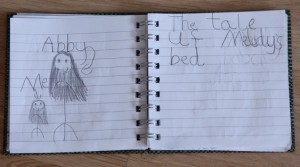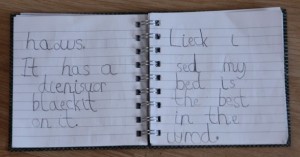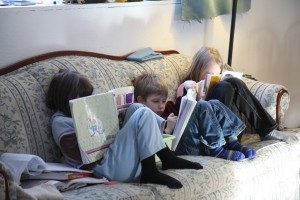So I seem to have a habit of giving people more than they’re [really] asking for.
Gerald, my Toastmasters mentor, called up over his lunch hour and opened with some species of “How’s it going?”
I’m often very good at giving the standard flippant response, but I’ve been mulling over that same question all morning, so instead I said, “Well, I’m a little traumatized right now, actually.”
“Ah,” he said, still in convo-lite mode. “That snow coming down.”
“No,” I said, suddenly realizing I’ve been surprised by it all four times I’ve walked out the door since it started. “I had a trauma yesterday– The goat went into labor, I spent two hours with my arm inside her trying to straighten out a baby that was too big to get out anyway. We ended up getting her a C-section and the baby was born dead. So, yeah, traumatized is a good word for ‘how I am’ right now.” Then I rushed on, recognizing there’s probably no way for him to recover from that statement. “But that’s not why you called, how can I help you…?”
More trouble is that the surgery cost twice as much as the goat did, and she’s still not voluntarily walking around, she’s shivering in the warm barn, and too many things look swollen that shouldn’t be, so I am still concerned for her life/health, and the whole thing doesn’t feel over yet.
I had two appointments Thursday morning, because usually I take the kids to school and it’s a good day to get stuff done.
I had to cancel the doctor appointment, but it looked like I could make the consultation at the IDEA (homeschooling) office, so I pressed into that. I felt really shaky, and every time I told the next person (four people over five hours) what I was doing/looking for and why, I got teary and self-conscious.
But I kept pressing because I wanted answers. I wanted something solid and concrete so I could wipe this question off the front of my mind.
The result is that I came home shaking and exhausted (I hadn’t brought any food or eaten lunch) but I had all the pieces I needed to loop the loose ends together and make a coherent whole.
Winterdust wasn’t then and still isn’t now seeming better as I’d hoped, and I’ve fallen back on my old standby (denial?) just staying inside and moving slowly forward on some small projects, like getting that broth canned, so it’s not wasted, and running the dishwasher.
One sad thing is that being the time of year it is I can’t even de-stress by catching up on TV shows, because they’re all finales, so my whole reason for watching shows right now (closure) is unlikely to be fulfilled.
Along the same line I’ve been delaying the dive-in to the next novel (Shadow Swan, NaNo 2010), because I dipped my toe earlier this week and all my intensity jacked up, full-throttle. That is, I usually feel the tension/stress of my stories until they’re completely written– which explains why I haven’t had the emotional energy to do a lot of work sometimes.
NaNo has been the exception– the pace of writing (and the legitimization of making the Story almost my main world of occupation…) it seems to work out.
There’s a *lot* that needs to be fixed and added to finish it from “just” 50,000 words, and I need to treat this like a marathon, not a sprint. But that looks like it’s going to take some rewiring.





